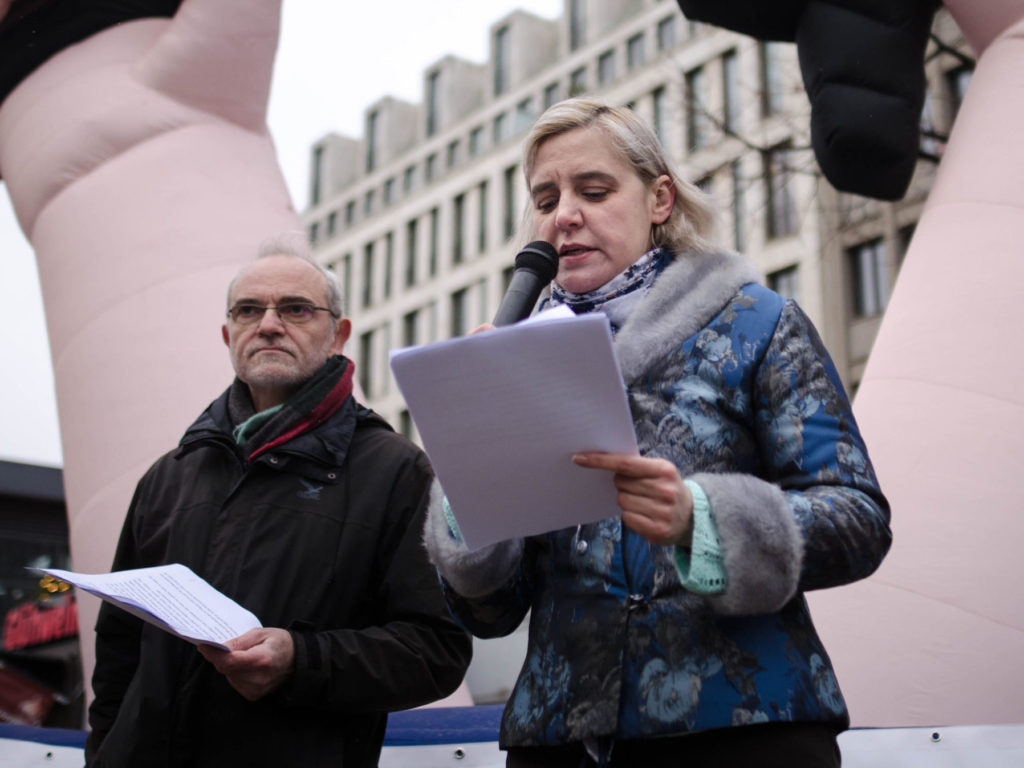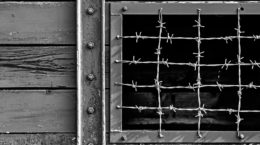When the war in Ukraine began, we found ourselves facing an impossible moral choice — one that left no room for hesitation. As Belarusian human rights defenders, we decided to act. We chose, without knowing the full cost of the struggle, to do everything in our power to prevent the Belarusian army from joining Putin’s war. We knew only this: that war was not our path, and that every Belarusian man being has the right to say No to violence, No to weapons, and No to becoming a tool for destruction in the war.

In this photo: Rudi Friedrich and I, speaking publicly about the importance of protecting Belarusian men
At the time, I must confess, I had never heard of “conscientious objection” as a human rights or political concept. I had never thought about the rights of men at all. I am a feminist. All my work, until then, had been devoted to protecting women and children. Standing up for the right of Belarusian men to refuse military service — that was a completely new, unfamiliar road for me.
And that road turned out to be steeper and more treacherous than I could have ever imagined.
Not only did we face expected hostility from the Belarusian regime and its allies — we also encountered unexpected resistance from governments that claim to stand for human rights. Even in Lithuania, where I live in exile, our campaign was often misunderstood, minimized, or attacked.
And yet, in the very beginning, when this struggle was still young and uncertain, there was one person who stood beside us — quietly, but firmly.
That person was Rudi Friedrich.
Rudi did not raise his voice or try to dominate the conversation. He didn’t lecture us. He simply listened — and then, with a calm and warm smile, said something I will never forget:
“Belarusians also have the right not to go to war.
Not only Russians. Not only Ukrainians. Belarusians too.”
That sentence — so simple, and yet so radical — gave us the strength to continue. In a world where borders are drawn in blood and principles often collapse under pressure, Rudi gave us a reason to believe that our struggle is not naïve, but necessary — and that resistance, even in silence, matters.
His shoulder, both metaphorically and literally, was something I leaned on more times than I can count. Strong, steady, and always there — at any hour, in any moment of despair.
Now that shoulder is gone.
And I find myself weeping, not only for the loss of a friend, but for the weight of everything we still have to carry — now without him.
I cannot believe that from this day forward, all our conversations, our shared moments, our laughter and quiet determination — will exist only in memory.
He has become part of Belarusian history and Belarusian resistance now.
But we — those of us who remain — will go on.
We will continue this work, no matter how difficult, no matter how lonely it may sometimes feel. We will keep fighting for the rights of Belarusian men who refuse to kill — and for a future where peace is not treated as a crime.
Rest in peace, dear Rudi.
You will always be with us — in every word we speak, in every man we help, in every “No” that echoes against the madness of war.
Olga Karach
Belarus









